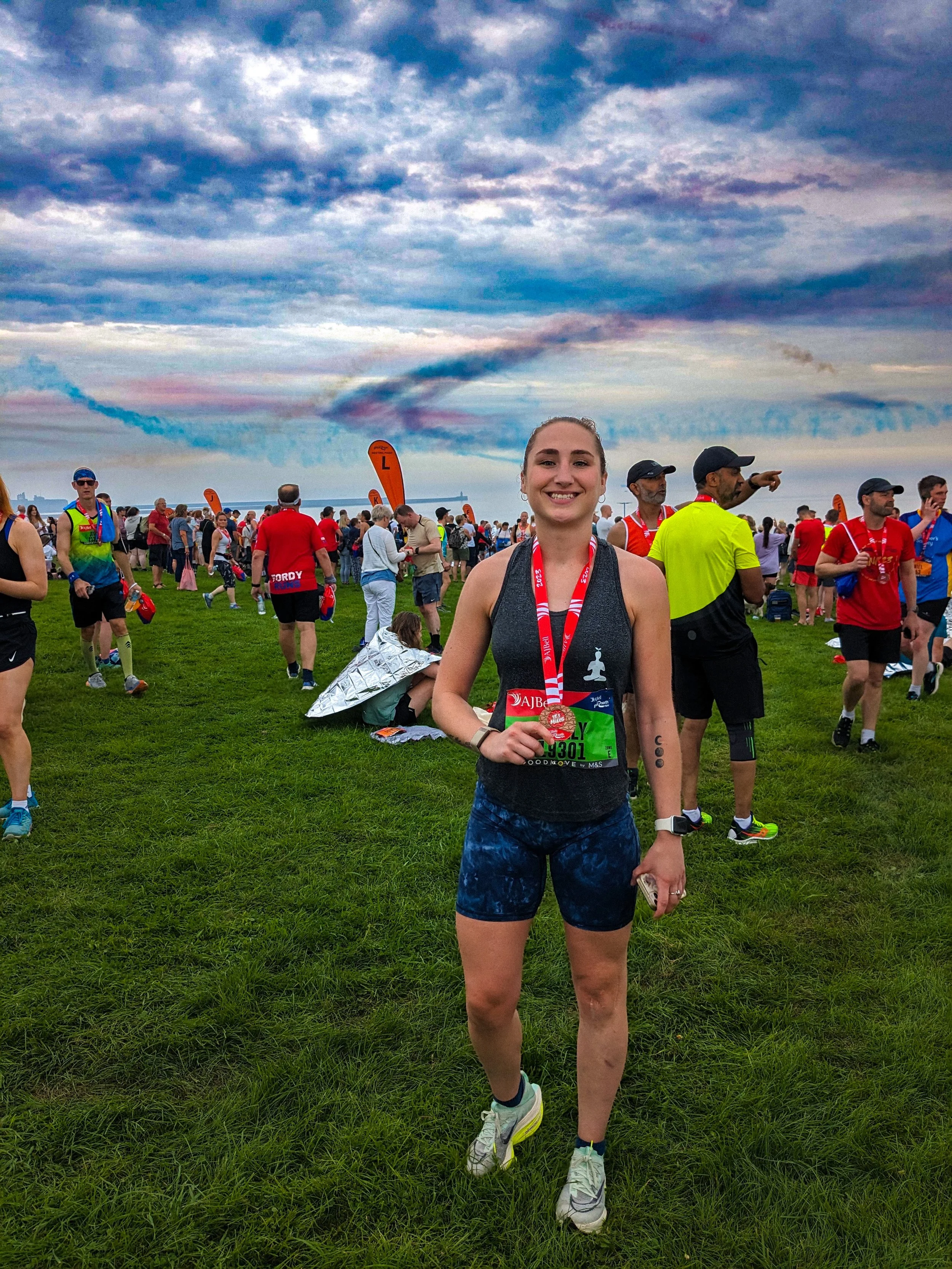Vegan Nutrition for a Runner
With it being a couple weeks since the Great North Run, I thought it’d be good to talk nutrition for running. Did you take part? I’d love to hear about how you got on. What events do you have lined up next?
September 10th, 2023 - Post Great North Run
Nutrition can be complex, but it also can be simple. Everything mentioned below is very generic and our demands as individuals are very different. We may see something advertised and jump on the band wagon, however you could be wasting your money. Your health and fitness journey should be fun and rewarding at the same time. Don’t make it harder than it needs to be.
A vegan nutrition plan for a runner is essential to ensure you get the necessary nutrients to support your training and overall health. Here's a general outline of a balanced vegan nutrition plan for runners:
1. Carbohydrates: Carbs are crucial for providing energy during your runs. Include complex carbohydrates like whole grains, legumes, and starchy vegetables in every meal. You may have heard of the term ‘carb loading’ before events, this is a great way of increasing muscle glycogen. However, you do want to be careful to not have unfamiliar foods or excessive amounts the night before, which could do the opposite by negatively affecting your performance.
2. Protein: Protein is essential for muscle repair and recovery. Good vegan sources of protein include tofu, tempeh, legumes (beans, lentils, chickpeas), quinoa, nuts, and seeds. Aim to have a protein source with most meals.
3. Healthy Fats: Incorporate sources of healthy fats like avocados, nuts, seeds, and olive oil for sustained energy and overall health. Useful for runners taking part in longer duration exercise where carbohydrate stores start to deplete and fat metabolism becomes prevalent.
4. Vitamins and Minerals:
Iron: Vegan sources of iron include beans, lentils, tofu, spinach, and fortified cereals. Pair iron-rich foods with vitamin C sources (citrus fruits, bell peppers) to enhance absorption and avoid drinking coffee/tea with iron rich foods (they inhibit absorption).
Calcium: Get calcium from fortified plant-based milk, leafy greens, tofu, almonds, and sesame seeds.
Vitamin B12: Consider a B12 supplement or fortified foods like nutritional yeast.
Vitamin D: Depending on your sun exposure, you may need a vitamin D supplement.
Omega-3 fatty acids: Flaxseeds, chia seeds, and walnuts are good sources.
5. Hydration: Stay well-hydrated before, during, and after your runs. Water, herbal teas, and natural electrolyte sources like coconut water can help. Make sure to not chug water the morning of your run, you want to be keeping hydrated the day before and in advance.
6. Pre-Run/During: Consume a carbohydrate-rich meal 2-3 hours before your run. Examples include oats with berries, yoghurt and almond butter or a banana with whole-grain toast. Allow your body to digest before having something lighter about 30min to 1 hour before you run, like an energy gel or piece of fruit that are easily broken down (simple carbs). For exercise between 1-2 hours, you want to consume around 30-60 grams per hour. For exercise over 2 hours, you may need to increase this to 60-90 grams per hour.
7. Post-Run Recovery: Have a balanced meal or snack with carbs and protein after your run. For example, a smoothie with plant-based protein powder, banana, and spinach. If it’s been a long run, particularly if you’ve sweated a lot, you will want to replace electrolytes as soon as possible to reduce nausea. A rule of thumb for hydration here is to drink about 1 litre of water for every 1kg of body weight lost through sweating. Although I’d recommend an intake of 150% of fluid lost (1.5 litres in this instance).
8. Snacks: Healthy vegan snacks include trail mix (nuts and dried fruits), hummus with veggies, protein bars, or a piece of fruit with nut butter.
9. Supplements: Consider a vegan multivitamin to cover potential nutrient gaps, particularly vitamin B12 and vitamin D. Perhaps even protein powders if you’re training more and feel your diet could benefit from increased intake. Beetroot and caffeine also aid in running performance - timing is key here though.
10. Experiment: Every runner is unique. Pay attention to how your body responds to different foods and adjust your nutrition plan accordingly. I recommend experimenting in advance during your training to avoid any issues on race day. Remember that adequate calorie intake is essential for runners, as you burn more calories during training. Listen to your body's hunger cues and adjust portion sizes accordingly. A well-balanced vegan diet can provide all the nutrients you need to excel in your running pursuits.
Make your plate colourful in most of your meals - foods in various colours have different nutrient properties, helping you with overall balance of nutrition.
Feeling tired all the time or like you can’t ever fully recover? There could be a gap in your nutrition, which you aren’t aware of. Making some small changes could be that step closer to gaining that PB you’ve been working for.
Remember this is all advice and every individual requires different needs, If you would like help in your nutrition with more in-depth analysis and personalised planning, please get in touch - hello@riseto.health

